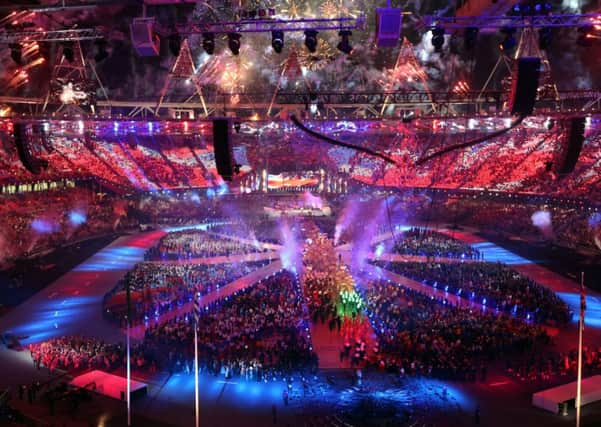Nick Westby: Monte Carlo or bust – Olympic movement facing stark choices


Exorbitant costs inflated by egos that want to outdo the last torch-bearer has seen major city after major city withdraw from the race to host future Games.
The bidding process for the 2022 Winter Olympics has proven a watershed moment for the whole process and has prompted change that will, hopefully, be ratified in the plush surroundings of Monte Carlo this afternoon at the 127th International Olympic Committee session.
Advertisement
Hide AdAdvertisement
Hide AdThe 2022 process has been farcical. Thirteen months ago, six cities lodged official bids to stage the 24th Winter Olympics.
Now, with six months to go in the race, there are only two cities left in the running; Beijing and Almaty in Kazakhstan, neither of which are exactly hotbeds of winter sport.
Stockholm withdrew because of a lack of political support.
Lviv in Ukraine pulled out to concentrate on returning in 2026, given their current volatile relations with neighbours Russia.
But rather more damningly for the Olympic movement, Krakow and Oslo withdrew because of an overwhelming lack of public support.
Advertisement
Hide AdAdvertisement
Hide AdSt Moritz in Switzerland had earlier ended its interest because the public voted against it.
European nations are running scared of the Olympic burden.
The Winter Olympics earlier this year proved the breaking point. At $51bn the Sochi Games were the most expensive in history, eclipsing the $40bn spent on the Summer Games in Beijing six years earlier.
To put those sums into context, London’s tab for hosting the Olympic and Paralympic Games two years ago was £8.77bn ($13.77bn).
Our country’s staging of the world’s grandest sporting extravanganza demonstrates that you do not have to outspend your rivals to put on a festival of sport and culture that creates lasting memories and lifts a nation.
Advertisement
Hide AdAdvertisement
Hide AdBut countries now are increasingly wary of putting a price on such tangible rewards.
So the IOC has come to a crossroads and must decide a better way forward for the bidding process from 2024 onwards, with the Winter Olympics two years before that already carrying the unwanted tag of the Games that almost no-one wanted.
Thomas Bach, the new president of the IOC, has put together the ‘Agenda 2020 review of the Olympic Movement’, which comprises 40 recommendations for the model moving forward, all of which has been discussed at length over the weekend in Monaco and which will be rubber-stamped – or thrown out – today.
The first three of those recommendations concern bidding, including details of how to reduce costs and increase benefits for countries contemplating hosting the Games.
Advertisement
Hide AdAdvertisement
Hide AdIn the first instance, they include a reduction in the number of presentations a bidding city will have to make, while in addition the IOC will foot the bill for up to six delegates attending the numerous briefings required. The IOC will also aim to be more involved at the early stage, consulting with cities with a focus on cost and benefit. They also plan to better communciate differences between the two budgets; long-term investment and infrastructure against the operational budget of delivering the Games.
A lot of it is jargon, but a lot of it is also common sense, like the use of existing and temporary facilities.
Britain has a mixed history of hosting major multi-sport Games but generally has got it right. It is too early to judge the true legacy of London, pictured below, but the venues created for the staging of the 2002 Commonwealth Games in Manchester still stand today and house the national cycling and squash centres, among others.
Sheffield hosted the World Student Games in 1991, the shining monument being Don Valley Stadium which was torn down controversially earlier this year. But Attercliffe remains transformed with the English Institute of Sport and other such state-of-the-art sporting facilities.
Advertisement
Hide AdAdvertisement
Hide AdWith any hope, established cities will be enticed back into the Olympic bidding process. It is not just the two major Games that the IOC put on, but also the Youth Olympics that a British city could make a play for in future. It is not beyond the realms that a Yorkshire city – sporting hubs like Leeds or Sheffield which have staged major sporting events in isolation – could have the potential to stage the Youth Olympics.
If common sense prevails then the ‘Agenda 2020’ recommendations will be approved today in Monte Carlo. Otherwise, the growing trend of major sporting events going to soulless Middle Eastern territories and obscure winter sports venues in the Far East, will continue.